No one at 20th Century Fox had faith in The Ox-Bow Incident, except for director William Wellman and star Henry Fonda, least of all Darryl F. Zanuck. The studio head thought that the subject was too grim and the approach too depressing and thus the film was bound to fail commercially.
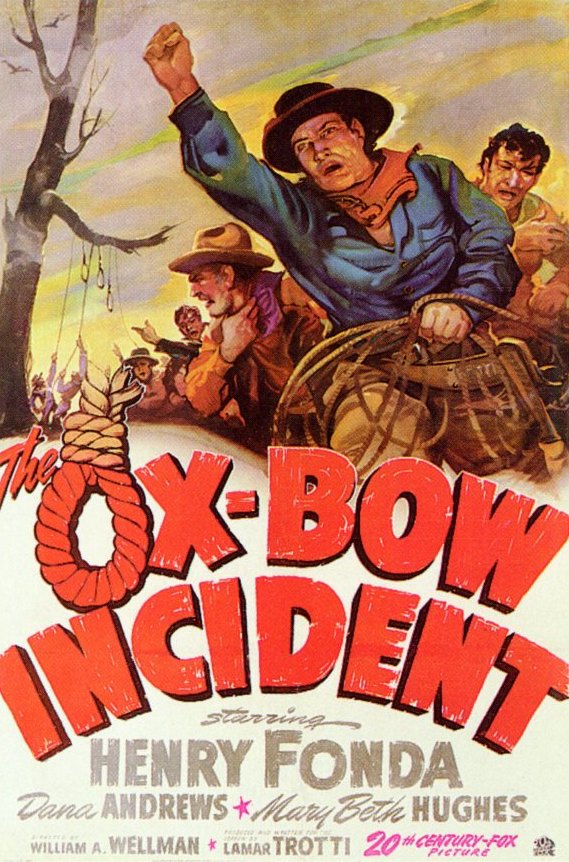
Zanuck was right about the lack of commercial appeal, except the filmmakers made a good movie, a one of a kind examination of a modern Western about mob lynching, with Fonda playing a cowboy-type who is unable to prevent three wandering travelers from being cruelly and unjustly lynched for murder they didn’t commit.
When the tale begins, Gil Carter (Fonda), a reckless and raunchy guy, rides into town with his scruffy sidekick. The duo soon becomes observers, but not participants, of dramatic turn of events. When a rancher is killed by cattle wrestlers, a lynch mob is quickly formed and innocent culprits are found.
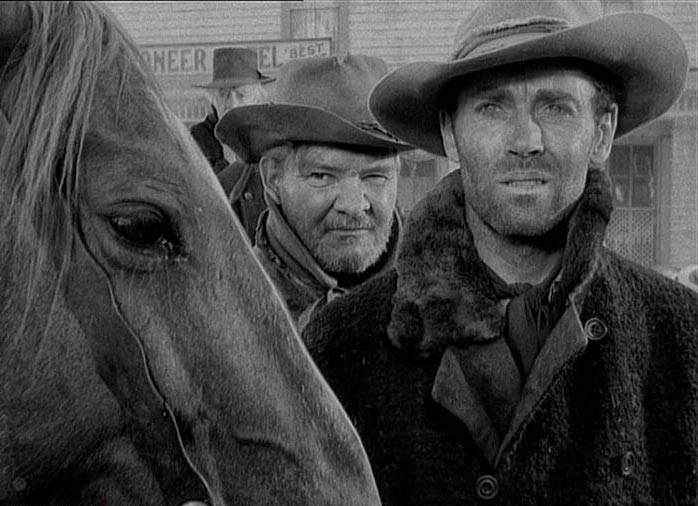
Despite their protests that they are innocent, they become victims of the fury of the mob, headed by a sadistic Army officer. After their hanging, the sobering truth is revealed.
In the movie’s most powerful and starkly uncompromising scene, Carter has his finest moment as an a actor in a barroom full of the mob members, who are now sobered by that news that it all had been a big mistake: Fonda reads a letter that one of the executed men wrote to his wife.
In his review, the movie critic Frank Nugent noted that the movie’s “realism was as sharp and cold as a knife.” Bosley Crowther, too, noted in the New York Times that the strong movie is “an ugly study in mob violence, unrelieved by any human grace, except futile reproach of a minority and some mild post-lynching remorse.”
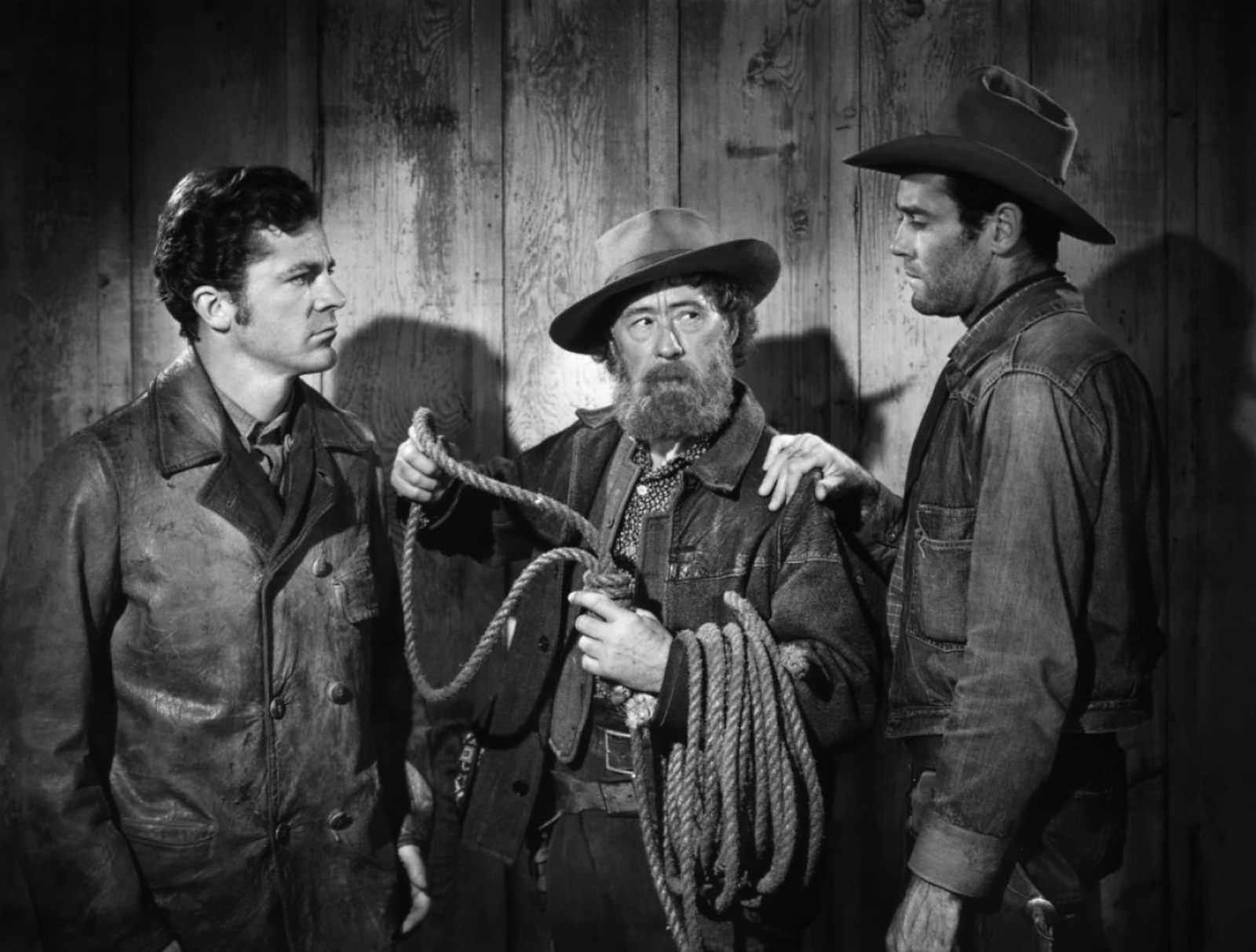
While the noirish film was widely acclaimed critically, it failed to find an audience, perhaps due to its release in 1943, in the midst of WWII, when the public opted for escapist entertainment, like Betty Grable musicals or patriotic war dramas.
The role of Gil Carter was originally planned for Gary Cooper, who turned it down, allowing Henry Fonda to be cast in one of his most iconic parts.
Over the years, Fonda had singled “The Ox-Bow Incident” as one of his most personal favorite films, alongside another grim chronicles of social (in) justice, such as “The Grapes of Wrath” (1940, also at Fox), and Sidney Lumet’s courtroom drama, “Twelve Angry Men,” in which Fonda starred as the only conscientious juror, the one who turns the case.
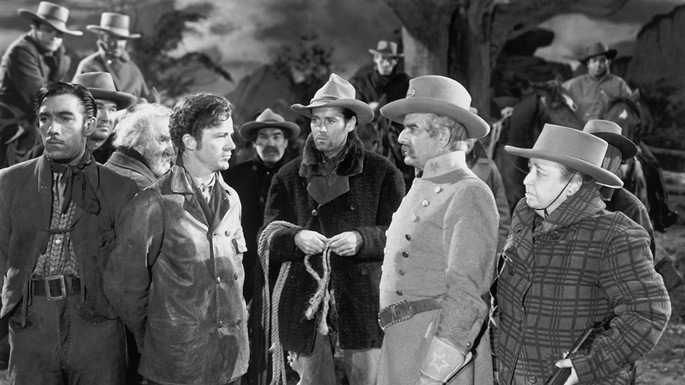
Oscar Alert
Oscar Nominations: 1
Picture, produced by Lamar Trotti
Oscar Awards: None
Oscar Context
In 1943, no less than ten films competed for the Best Picture Oscar: “Casablanca,” which won, “For Whom the Bell Tolls,” “Heaven Can Wait,” “The Human Comedy,” “In Which We Serve,” “Madame Curie,” “The More the Merrier,” “The Ox-Bow Incident,” “The Song of Bernadette,” and “Watch on the Rhine.”
Of the ten nominees, William A. Wellman’s “Ox-Bow Incident” was the only film to receive just one nod, for Best Picture. It may also be the shortest films (75 minutes) ever nominated for the top award.
The film was not a box-office success upon initial release, but developed greater appreciation when William Wellman’s and Henry Fonda’s careers were reexamined.
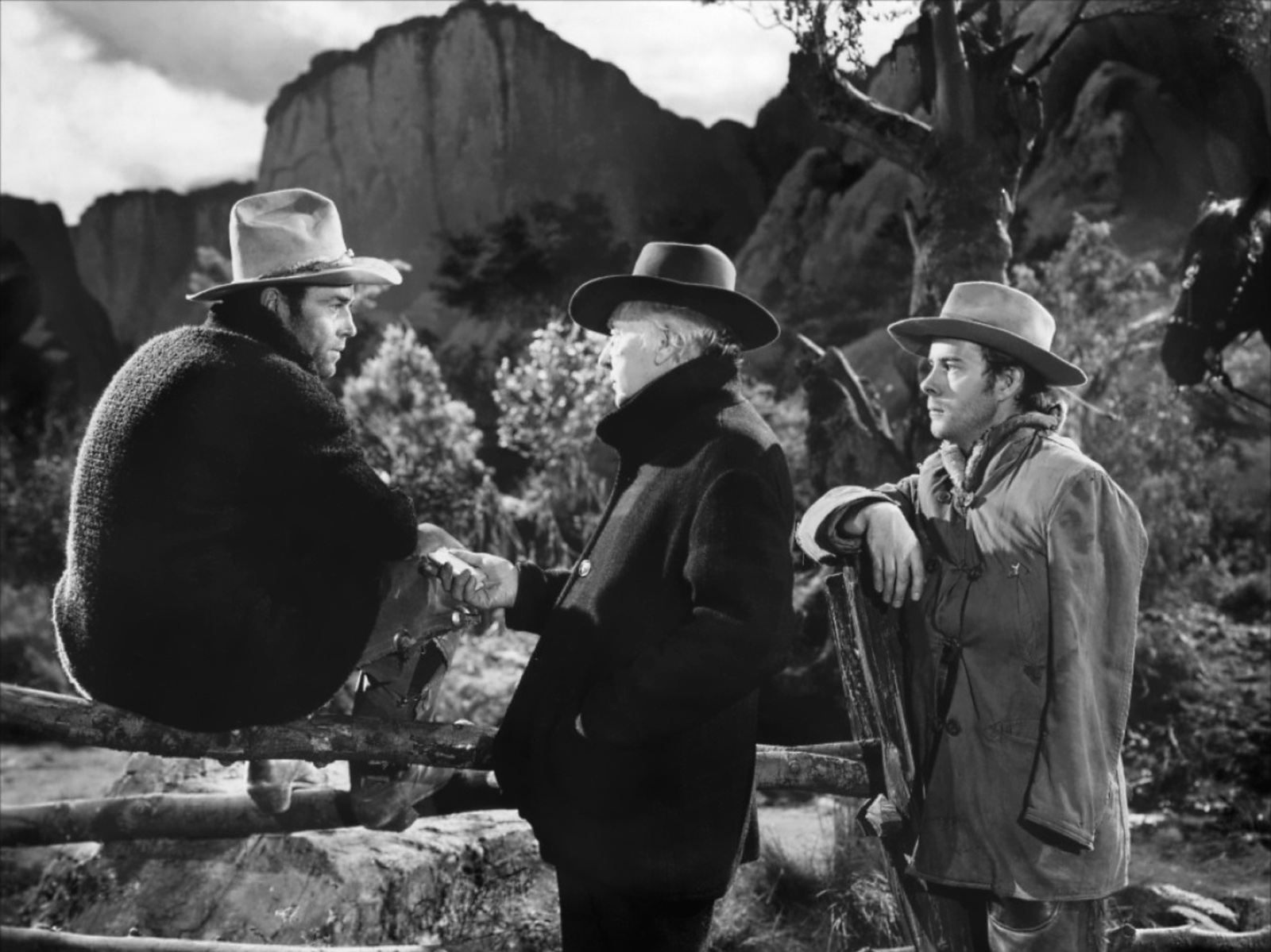 Cast
Cast
Henry Fonda as Gil Carter
Dana Andrews as Donald Martin
Harry Morgan as Art Croft
Frank Conroy as Major Tetley
Harry Davenport as Mr. Arthur Davies
Anthony Quinn as Juan Martínez, the Mexican
Francis Ford as Alva Hardwicke, The Old Man
William Eythe as Gerald Tetley
Mary Beth Hughes as Rose Mapen/Rose Swanson
Jane Darwell as “Ma” Jenny Grier
Marc Lawrence as Jeff Farnley
Paul Hurst as Monty Smith
Chris-Pin Martin as Poncho
Credits:
Directed by William A. Wellman
Produced and written by Lamar Trotti, based on The Ox-Bow Incident by Walter Van Tilburg Clark
Music by Cyril J. Mockridge
Cinematography: Arthur C. Miller
Edited by Allen McNeil
Distributed by 20th Century Fox
Release date: May 8, 1943 (NYC); May 21, 1943 (USA)
Running time: 75 minutes
Budget: $565,000
Box office: $750,000 (rentals)



